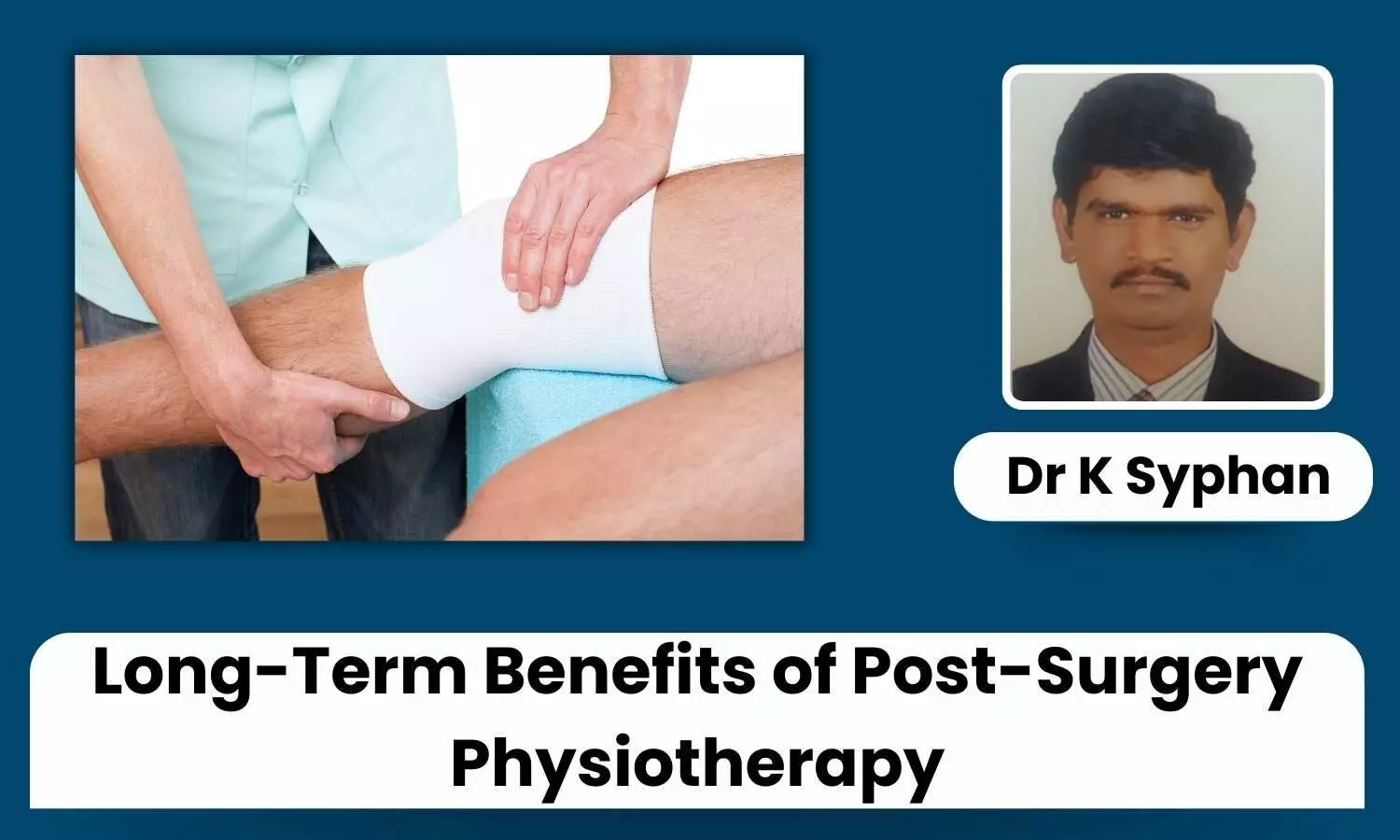Beyond the Operating Room: Long-Term Benefits of Post-Surgery Physiotherapy - Dr K Syphan

Surgery is often seen as the most critical step in treating a wide range of medical conditions, from joint replacements to spinal injuries and cardiac interventions. However, for many patients, the journey to recovery doesn’t end when they leave the operating room.
Post-surgery physiotherapy plays a pivotal role in regaining strength, mobility, and function. While often underestimated, the long-term benefits of physiotherapy after surgery can be transformative, leading to a quicker recovery, reduced complications, and an improved quality of life.
1. Enhancing Recovery Through Movement
A key goal of post-surgery physiotherapy is to restore movement safely and quickly. Prolonged immobility can cause muscle atrophy, joint stiffness, and poor circulation, hindering recovery. Guided exercises help regain flexibility and movement, ensuring optimal healing.
For joint replacements like knee or hip surgeries, early supervised movement prevents complications like blood clots and stiffness, promoting better mobility and independence in the long term.
2. Pain Management and Improved Comfort
Post-surgery physiotherapy offers effective, non-medication methods for pain management. Techniques like massage, stretching, and strengthening exercises reduce swelling and improve blood flow, helping alleviate pain.
Physiotherapists may also use heat or cold therapy, IFT, and ultrasound to promote healing and ease discomfort. By addressing pain early, patients can move more freely, accelerating recovery and enhancing overall comfort during the healing process.
3. Restoring Strength and Functionality
Post-surgery physiotherapy is essential for rebuilding weakened muscles and joints. Without proper rehabilitation, patients risk long-term issues like decreased strength or permanent disability.
Physiotherapists design targeted exercise programs to restore muscle strength, endurance, and coordination, especially after orthopaedic surgeries like spine or knee procedures. This helps improve mobility, reduces rely on assistive devices, and allows patients to return to daily activities with greater ease and confidence.
4. Preventing Complications and Future Injuries
A key benefit of post-surgery physiotherapy is its role in preventing complications like blood clots, infections, and re-injury. Targeted exercises promote circulation, reducing clot risks, while physiotherapists teach proper movement techniques to prevent strain during recovery. They also guide patients in using assistive devices, maintaining good posture, and building strength, all of which help avoid future injuries and support long-term healing.
5. Boosting Mental and Emotional Well-being
Post-surgery physiotherapy offers not only physical benefits but also crucial mental and emotional support. It provides structured goals that help patients regain control, boosting confidence and reducing anxiety.
The encouragement from physiotherapists fosters motivation and resilience during recovery. As patients regain mobility and independence, their quality of life improves, allowing them to return to activities they enjoy and reconnect with loved ones, enhancing overall emotional well-being.
6. Long-Term Health Benefits
The benefits of physiotherapy extend well beyond the immediate post-surgery phase. Long-term rehabilitation helps improve cardiovascular fitness, muscle strength, and joint stability, promoting a more active and healthier lifestyle.
This reduces the risk of chronic issues like obesity, heart disease, or diabetes. For example, cardiac rehabilitation includes physiotherapy to boost heart health, while spinal surgery patients rely on it to maintain core strength and prevent future back problems.
7. Customizing Recovery Plans for Individual Needs
Post-surgery physiotherapy excels through its personalized approach. Rehabilitation plans are tailored to the patient’s surgery, health condition, and goals, ensuring a safe yet challenging recovery pace.
Physiotherapists continuously monitor progress, adjusting treatments to match the patient’s evolving needs. Whether the aim is to return to sports, work, or daily routines, this individualized care provides the foundation for a successful, long-term recovery.
Post-surgery physiotherapy goes far beyond the operating room, offering long-term benefits that are essential for a successful recovery. From improving mobility and strength to reducing pain and preventing complications, the role of physiotherapy in post-operative care is undeniable.
With the guidance of a skilled physiotherapist, patients can regain independence, improve their quality of life, and experience a healthier, more active future.


